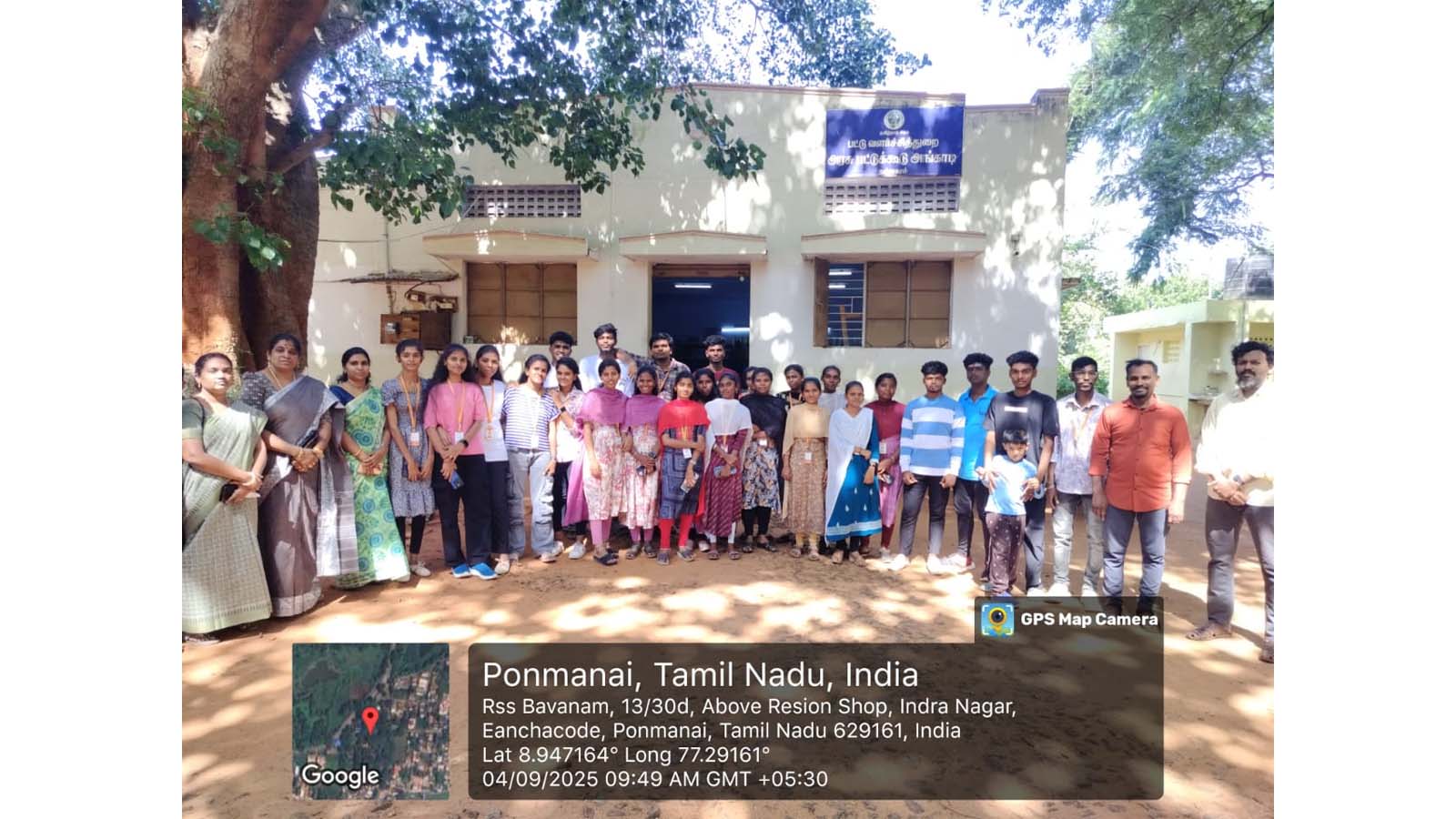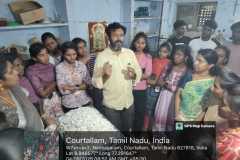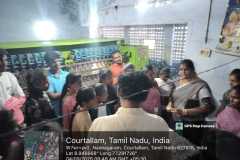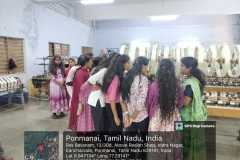
Insightful Sericulture Field Trip 2025 by Zoology Department at Kamaraj College
Insightful Sericulture Field Trip 2025 by Zoology Department of Kamaraj College
The Sericulture Field Trip 2025 organized by the Department of Zoology, Kamaraj College (Autonomous), Thoothukudi, provided an enriching and practical learning experience for students. On September 4, 2025, the third-year B.Sc. Zoology students, accompanied by faculty members and lab assistants, visited the Sericulture Department at Nannagaram in Tenkasi District. This field trip was part of the academic curriculum to bridge the gap between theoretical knowledge and practical exposure.
Objective of the Sericulture Field Trip 2025
Sericulture is included as a major elective subject in the Zoology curriculum at Kamaraj College. While classroom teaching provides detailed theoretical knowledge of sericulture, students often miss the opportunity to observe real-time processes. The Sericulture Field Trip 2025 was designed to give students hands-on exposure, enhance their understanding of silk production, and prepare them to apply theoretical concepts to real-world practices. The field visit also aimed to encourage students to prepare a comprehensive field report that reflects their practical learning.
Faculty and Staff Participation
The field trip was carefully coordinated with the guidance of faculty members Dr. R. Nagarajan and Dr. S. Nazerath Nisha. Lab assistants M. Maheshwari and Sivakumari also supported the students during the visit. Their combined efforts ensured that the trip was structured, informative, and beneficial for all participants.
Practical Exposure to Sericulture Processes
At the Sericulture Department, the students were warmly welcomed by the field officer Mr. Kalidas. He delivered a detailed explanation of the various processes involved in sericulture. His session included practical insights on:
- Production stages in the sericulture industry.
- Understanding moulting and its significance.
- Spinning techniques and cocoon formation.
- Harvesting practices for better yield.
- Cocoon reeling and re-reeling processes.
- Assessing cocoon quality and grades.
- Pricing structure of cocoons per kilogram.
- Marketing strategies and supply chain of silk cocoons.
- Moriculture and propagation methods for mulberry plants.
This detailed walkthrough of the processes gave students an opportunity to connect their classroom learning with industry practices. Observing these stages first-hand allowed them to appreciate the scientific, economic, and cultural aspects of sericulture.
Discussion on Employment and Government Support
The Sericulture Field Trip 2025 also provided students with important career-oriented knowledge. Mr. Kalidas elaborated on the preliminary requirements to start a sericulture business, highlighting the infrastructure, resources, and skills needed. He also emphasized the various government policies and subsidies that support individuals interested in sericulture as an entrepreneurial venture.
Students were particularly interested in the discussion on employment opportunities within the sericulture industry. They learned about potential career paths ranging from sericulture farmers and silk reeling technicians to researchers and quality control experts. The session highlighted that sericulture is not only a science-based subject but also a field with promising job prospects and entrepreneurial opportunities.
Student Learning Outcomes from Sericulture Field Trip 2025
The field trip was highly beneficial for the participating students in several ways:
- It reinforced theoretical concepts through practical demonstrations.
- It provided exposure to real-world applications of sericulture techniques.
- It clarified the economic and scientific importance of silk production.
- It introduced students to future career and research opportunities.
- It encouraged students to prepare a detailed field report for academic assessment.
Students expressed that the visit helped them understand complex concepts such as cocoon grading, marketing mechanisms, and mulberry propagation in a much clearer way. The hands-on exposure to the sericulture industry not only enriched their academic knowledge but also sparked curiosity and interest in exploring sericulture as a profession.
Role of Sericulture in Zoology Curriculum
The inclusion of sericulture as a major elective subject in the Zoology curriculum at Kamaraj College reflects the institution’s vision to offer both traditional and applied scientific knowledge. The Sericulture Field Trip 2025 demonstrated the importance of balancing theoretical education with practical exposure. By directly observing sericulture practices, students gained a deeper understanding of zoology as a subject that connects biology with agriculture, economy, and industry.
Commitment of Kamaraj College to Practical Learning
Kamaraj College has consistently emphasized the importance of practical learning. The Sericulture Field Trip 2025 stands as a testimony to the institution’s commitment to holistic education. Such initiatives ensure that students are not restricted to textbook knowledge but are equipped with skills and experiences that prepare them for both academic excellence and professional growth.
Conclusion
The Sericulture Field Trip 2025 organized by the Department of Zoology at Kamaraj College was an invaluable experience for the third-year students. With guidance from faculty members and the expertise of the field officer, the trip offered a comprehensive understanding of sericulture. From silk production techniques to government support policies, the visit covered all aspects of the industry.
This initiative not only enhanced students’ practical knowledge but also inspired them to consider sericulture as a viable career path. The success of the field trip reflects the college’s continuous efforts to integrate practical exposure into academic learning, thereby preparing students to excel in science, research, and industry.



